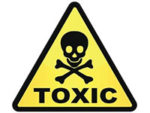Recently, we wrote about new faces at the FTC, which, for the first time in its history, has five new Commissioners in a calendar year. This unprecedented change has cast some uncertainty on how the FTC will approach consumer protection enforcement. Recent actions by the Commission, however, indicate that despite new leadership, the Commission’s focus
False Advertising
The Department of Justice’s Consumer Protection Branch Believes a Coupon-Driven Class Action Settlement Is “Unfair” and States it Is Cracking Down on “Unfair” Class Action Settlement Proposals
 Is the government about to make it harder for companies to settle consumer class actions? The Department of Justice’s Consumer Protection Branch, in a Statement of Interest (Statement), has requested that a Judge set aside a proposed class action settlement that would enrich plaintiffs’ attorneys to the tune of nearly $2 million. Specifically, the DOJ…
Is the government about to make it harder for companies to settle consumer class actions? The Department of Justice’s Consumer Protection Branch, in a Statement of Interest (Statement), has requested that a Judge set aside a proposed class action settlement that would enrich plaintiffs’ attorneys to the tune of nearly $2 million. Specifically, the DOJ…
FTC Cleans Up “Free” B2B Marketing
 The FTC is no stranger to cracking down on businesses offering so-called “free” products, only to charge the consumer for them later on. It wasn’t long ago that we wrote about that exact issue. But a recent FTC complaint shows that the FTC is not only cleaning up businesses selling directly to consumers, but also businesses selling to other businesses.
The FTC is no stranger to cracking down on businesses offering so-called “free” products, only to charge the consumer for them later on. It wasn’t long ago that we wrote about that exact issue. But a recent FTC complaint shows that the FTC is not only cleaning up businesses selling directly to consumers, but also businesses selling to other businesses.
On October 30th, the FTC filed suit in Illinois against a number of cleaning product suppliers for violating the FTC Act, the FTC’s Telemarketing Sales Rule, and the Unordered Merchandise Statute. The complaint alleged that defendants, who sell office and cleaning supplies, called small businesses, hotels, municipalities, and charitable organizations, purporting to offer a free sample of their products. However, the samples were not free. Regardless of whether the consumer wanted the sample or not, the defendants would send one, and following not too far behind would be an invoice for that free sample.Continue Reading FTC Cleans Up “Free” B2B Marketing
NAD Finds Support for Cleaning Products Claims Not All Sunshine and Daisies
 Whoopsy daisy.
Whoopsy daisy.
Better Life, a maker of home cleaning products, recently ran evocative comparative video ads with a product demonstration to grab consumers’ attention and gain share. It’s a common enough advertising strategy, but one that Better Life in this case should have nipped in the bud, according to NAD.
The ads featured a time-lapse demonstration in which gerbera daisies were placed inside Better Life All Purpose Cleaner and in four other household cleaning products, including Windex®. During a sped-up 24-hour period, consumers watched as the daisies in the other four cleaning products tragically wilted and died, while the daisy in Better Life’s cleaner thrived. Beneath the video appeared this message: “Amazing things happen when you take the toxins out of the household cleaners.”
S.C. Johnson & Son, Inc. (SCJ), the maker of Windex® and other cleaning products, did not like to be tagged as a flower killer along with a germ killer, so it turned to the National Advertising Division (NAD). SCJ argued that the video denigrated and disparaged Windex® by falsely suggesting that it is toxic and harmful to consumers.Continue Reading NAD Finds Support for Cleaning Products Claims Not All Sunshine and Daisies
Fan Was Expecting Goldfinger, but Instead Got Oddjob: Woman Sues Movie Studios over James Bond Movie Collection
 James Bond is best known for the cars, the adventures, the spy gadgets, and the villains he (generally) defeats by the end of the movie. And, like most big-screen heroes, James Bond is only as good as the unique adversaries, from men with golden guns to odd fellows, he faces in
James Bond is best known for the cars, the adventures, the spy gadgets, and the villains he (generally) defeats by the end of the movie. And, like most big-screen heroes, James Bond is only as good as the unique adversaries, from men with golden guns to odd fellows, he faces in the 26 24 all the franchise’s movies. One particular adversary however, Mary Johnson, a self-described Bond fan, may be James Bond’s biggest rival to date.
In April, Johnson filed a class action suit in Washington State against several entertainment companies that own the rights to the James Bond franchise, including MGM Holdings, Inc. and 20th Century Fox Home Entertainment. Johnson claims that she and other members of the class purchased two James Bond DVD boxed sets that promise: “[ALL] the Bond films gathered together for the first time in this one-of-a-kind boxed set – every gorgeous girl, nefarious villain and charismatic star from Sean Connery, the legendary actor who started it all, to Daniel Craig.” (Emphasis Added). The problem is that the sets don’t include 1967s Casino Royale or 1983s Never Say Never Again films. Some Bond connoisseurs would argue that the two excluded films are not part of the franchise because Casino Royale was a spoof produced by a different movie studio and Never Say Never Again was the result of a complicated rights dispute between MGM and the movie’s writer, Kevin McClory. Nevertheless Johnson claims, the fact that the box sets don’t include literally “all” of the franchise’s movies, the use of the word is deceptive and therefore constitutes a violation of Washington’s Consumer Protection Act. Johnson seeks class certification, an award of damages, including punitive damages, and court costs and attorneys’ fees.Continue Reading Fan Was Expecting Goldfinger, but Instead Got Oddjob: Woman Sues Movie Studios over James Bond Movie Collection
Even Former Judges Can Be Exposed to False Advertising Liability
 You think judges are immune to lawsuits? Think again, especially if you are a retired judge seeking to resolve disputes in the private alternative dispute resolution (ADR) business.
You think judges are immune to lawsuits? Think again, especially if you are a retired judge seeking to resolve disputes in the private alternative dispute resolution (ADR) business.
A San Diego jury is being asked to decide whether former California Court of Appeal Justice Sheila Sonenshine and ADR powerhouse JAMS, Inc. are liable for false advertising based on representations touting Sonenshine’s experience on JAMS’s website.
Kevin Kinsella, the plaintiff in the case, hired JAMS and Sonenshine to serve as a privately compensated temporary judge in his divorce dispute. Kinsella is a venture capitalist who had a number of profitable business ventures prior to his marriage and claims that he agreed to his now ex-wife’s request to hire Sonenshine because he wanted a judge with expertise in dissolution actions and business matters. Kinsella says that he reviewed JAMS’s website to evaluate Sonenshine’s experience in business, including investment banking, financial markets, business ventures, and private equity funding, but learned too late that Sonenshine’s biography was misleading.Continue Reading Even Former Judges Can Be Exposed to False Advertising Liability